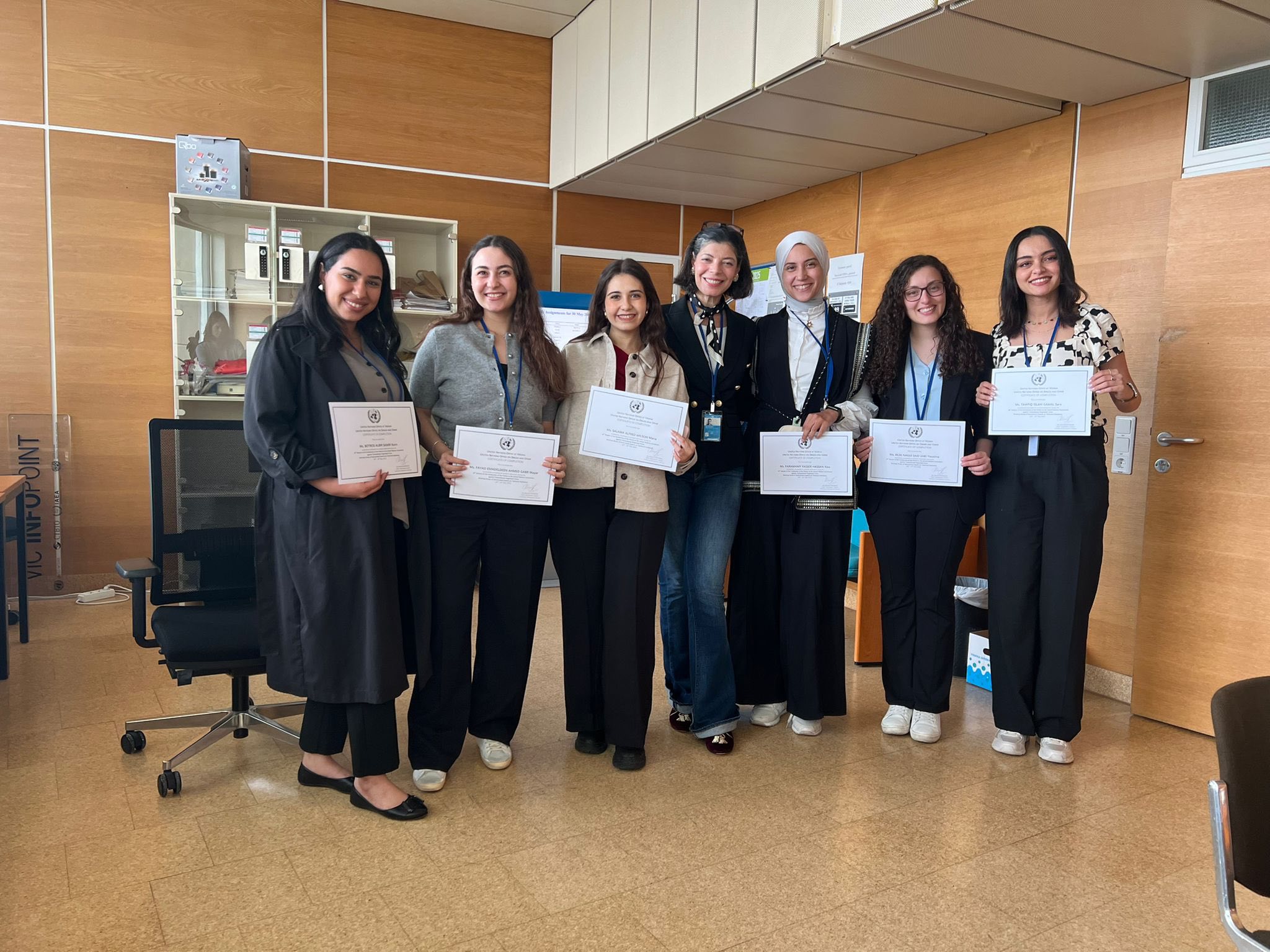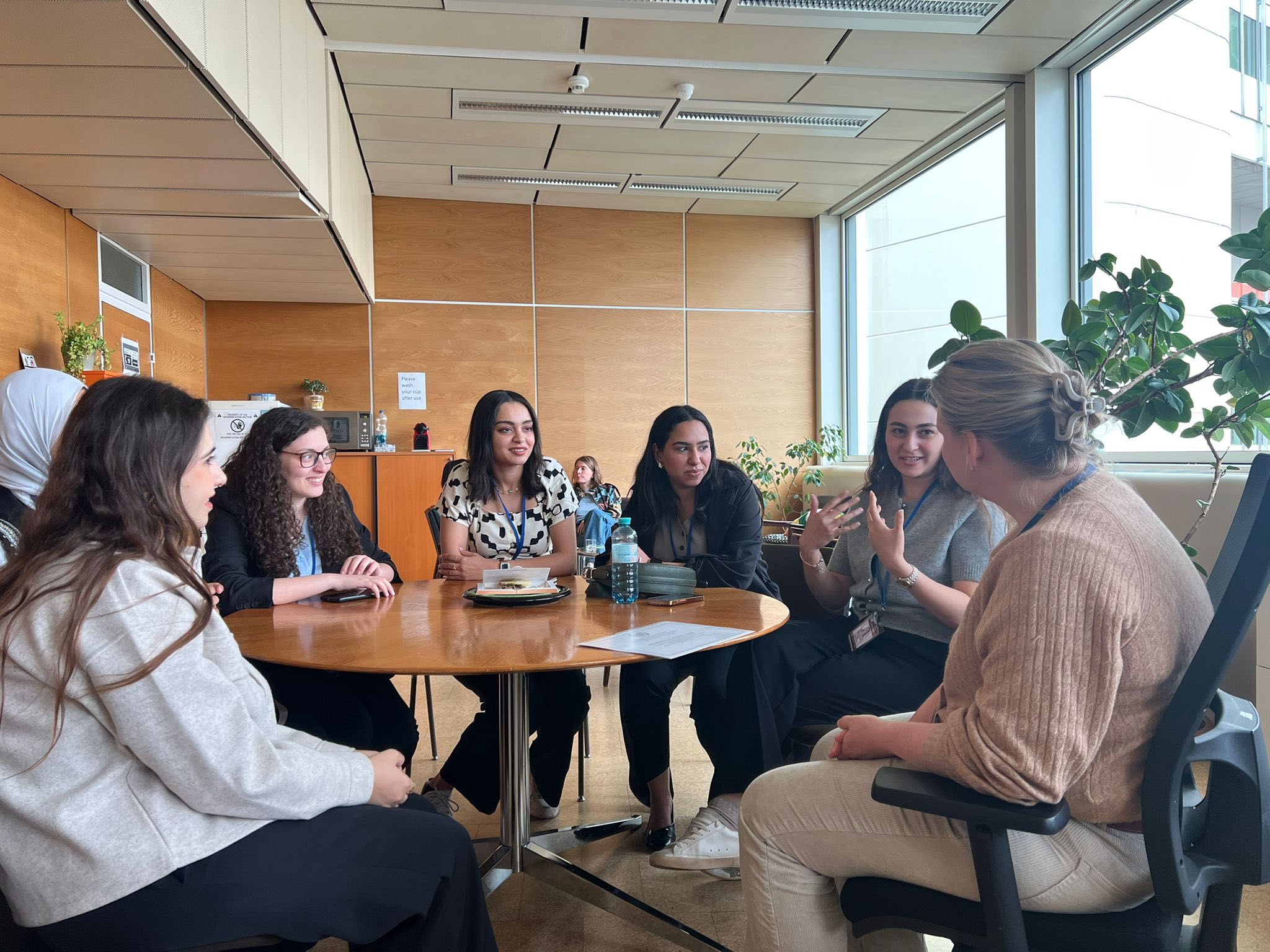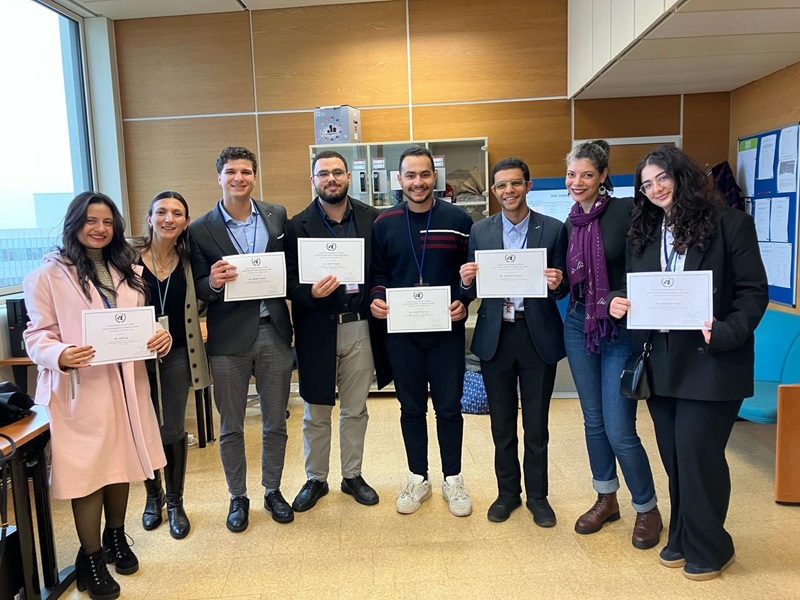The Students of the Faculty of Al-Alsun Embark on Unique Training Experiences Inside the United Nations Premises in Vienna
Reflecting Ain Shams University's commitment to opening new horizons for its students to gain practical experience in global work environments, students from the Faculty of Al-Alsun participated in three distinguished training programs at the United Nations headquarters in Vienna. This program was held under the auspices of Prof. Mohamed Diaa Zain El-Abedeen, President of the University; Prof. Amany Osama Kamel, Vice President for Graduate Studies and Research; and Prof. Salwa Rashad, Dean of the Faculty; and under the supervision of Prof. Ashraf Attia, Vice Dean for Graduate Studies and Research; and Assistant Professor Yasmeen Mahmoud, General Coordinator of New Credit-Hour Programs.
 |
 |
These training programs are the fruit of the collaboration that began in 2020 between Ain Shams University (represented by the Faculty of Al-Alsun) and the United Nations Department of General Assembly and Conference Affairs. The program aims to support the development of the university's students' academic and practical skills, particularly in the fields of written and simultaneous translation. This program will meet the demands of the international labor market and enhance their ability to compete globally. The first training program (November 18–22, 2024): Five undergraduate students (credit-hour program in Interpretation and Translation) from the English Department participated in the program: Youssef Rady, Ahmed Tantawy, Adam Ibrahim, Hamed Ahmed, and Joy Mohsen. The participants attended the sessions and discussions of the Working Group IV on Electronic Commerce, which took place at the United Nations Headquarters in Vienna.
The second training program (March 10–14, 2025): Five students from the third and fourth levels of the Interpretation and Translation program (credit-hour program) from the English Department participated in the program: Marwan Anwar, Joy Mohsen, Youssef Rady, Hamed Ahmed, and Ahmed Tantawy. The program included attendance at the sixty-eighth session of the Commission on Narcotic Drugs – United Nations Office on Drugs and Crime. Third Training Program (May 26–30, 2025): Six graduate students and teaching staff from the English and French Departments participated: Maria Alfred, Mayar Emad El-Din, Alaa Yasser, Karen Alber, Sara Islam, and Yustina Naji. The students attended the activities and discussions of the 16th Session of the Conference of the States Parties to the United Nations Convention against Transnational Organized Crime: Working Group on Technical Assistance, held at UN Headquarters during that period.
During these training courses, the students had the opportunity to gain firsthand insight into the daily workings of the United Nations and interact with translation and multilingual diplomatic experts. The programs also included practical training in interpretation and translation skills, providing participants with an important practical dimension and a clearer insight into the nature of work in international institutions.
For her part, Prof. Salwa Rashad, Dean of the College, stated that this experience is part of the College's approach to promoting academic excellence and innovation in its programs. She noted that providing training opportunities at international institutions represents a qualitative addition that contributes to preparing graduates capable of competing in the international labor market and handling global issues efficiently and professionally. She emphasized the College's continued efforts to establish qualitative partnerships with major international institutions, ensuring the provision of advanced training opportunities that contribute to the graduation of distinguished cadres capable of leading multilingual and multicultural work paths.
Prof. Ashraf Attia, Vice Dean for Graduate Studies and Research, indicated that these trainings represent a qualitative leap in the process of preparing students and qualifying them for the requirements of the international labor market. He noted that direct interaction with institutions the size of the United Nations provides students with practical experience that cannot be obtained in classrooms alone.
Participating students expressed their happiness and pride in this experience, which they described as a "milestone" in their academic and professional careers, as it provided them with real-world experience and contributed to broadening their understanding of performance standards in international institutions.


.svg)

